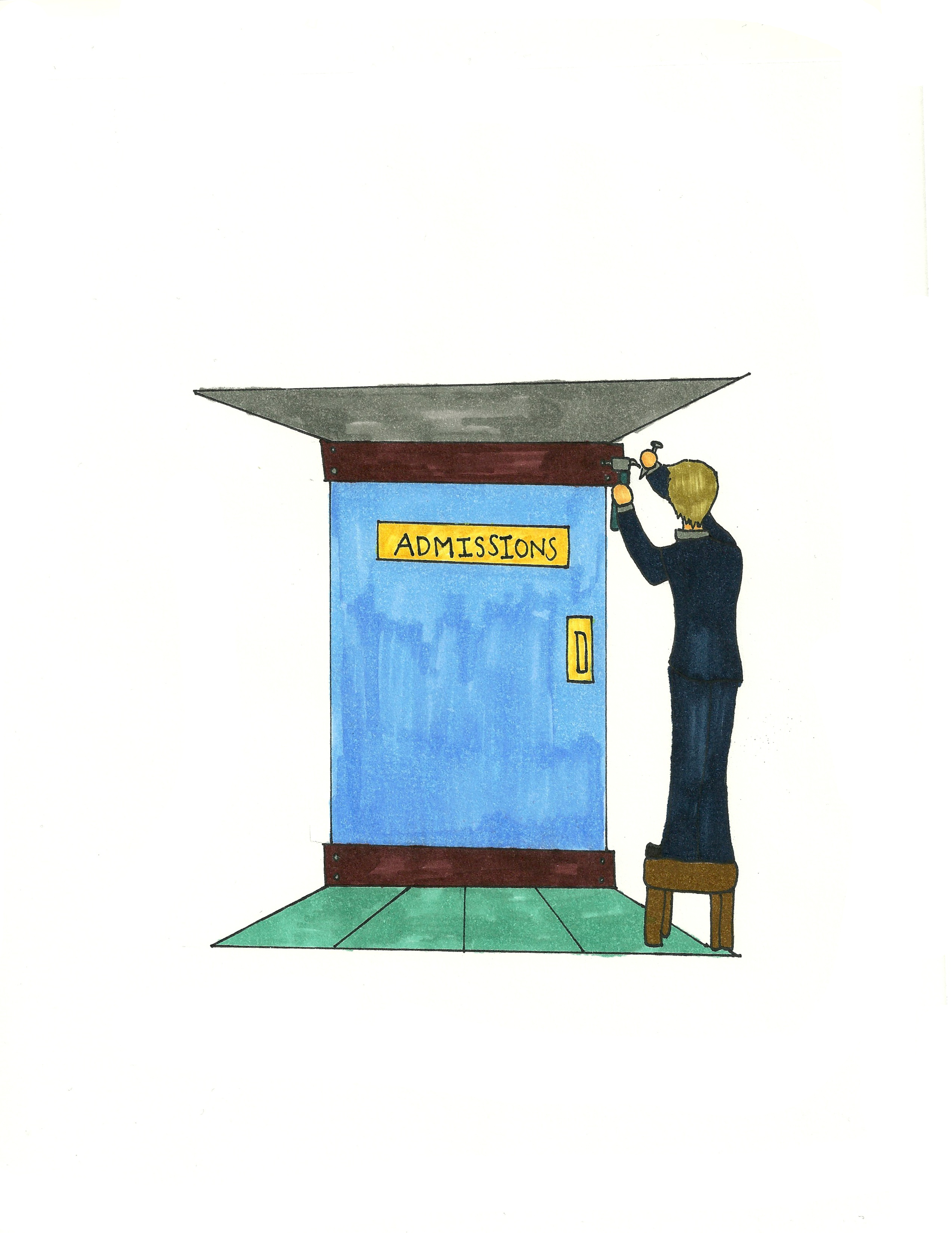Professional schools' increasing selectivity is beneficial to students in the long run

By Nicole Mirea
May 14, 2012 11:40 p.m.
Aspiring lawyers, watch out. The job market for lawyers is declining. While the National Association for Law Placement reports that 87.6 percent of law school graduates from the class of 2010 are employed, just 68.4 percent were employed in positions that required passage of bar exams.
Combined with rising fees, the lack of post-bar exam job opportunities creates a situation in which many graduates find themselves saddled with debt they cannot pay off in the near future. For the average student at the UCLA School of Law who paid $44,922 in tuition and fees this school year, underemployment poses a serious risk.
Too many students are admitted to law school without being qualified in the first place.
Frank Wu, chancellor and dean of the UC Hastings College of Law, has come up with a simple solution to alleviate the pressure on graduates: He has reduced the size of UC Hastings’ incoming class by 20 percent, from 414 to 330 students.
In an interview with USA Today, Wu said that while more selective admissions will push UC Hastings up in the rankings, the primary purpose of his plan is to discourage underqualified students from pursuing a law degree. He said he encourages other law schools to follow suit.
Though it might seem unfair to the students who will not be attending UC Hastings in the fall, Wu’s plan to reduce admissions is a good idea. It would be unethical to let unqualified students sink hundreds of thousands of dollars into a law degree when their lack of preparedness dooms them before they even enter the workforce.
This leads to the question: Is this a viable model for other professional schools?
Jobs in health sciences are in high demand, and will probably continue to stay that way ““ after all, a shortage of sick people is unlikely. Likewise, engineering is a booming field. The economy affects each profession differently.
But why should schools base their admissions numbers on the demands of the market at all? Reducing incoming class size is a good idea, no matter what job prospects look like.
“The total number of students that matriculate each year is 88,” said Noemi Benitez, admissions coordinator at the UCLA School of Dentistry. “That’s the way it’s always been.”
Benitez said that the number was unlikely to change according to the demands of the job market. By keeping cohort size small (about 5 percent of total applicants for the class of 2015, according to the School of Dentistry’s 2010-2011 report), the dentistry school is on the right track.
Schools should strive to match students to vocations in which they will thrive. If that means being more selective and adjusting cohort sizes, then so be it.
Undergraduate education, however, should remain unaffected. According to a Northwestern University report based on 2011 data cited by the Associated Press, 53.6 percent of people under the age of 25 who have just received their bachelor’s degree are either unemployed or underemployed. This makes the short-term situation seem dire, but a bachelor’s degree is still a worthwhile pursuit.
The undergraduate years are a time to explore many different fields to get a small taste of the future. They are a time when students are free to pursue academic interests they may not have been exposed to in high school.
Furthermore, while an undergraduate diploma may not guarantee a job, the lack of a bachelor’s degree can disqualify an otherwise ideal job candidate. The skills needed for the job may not match up with those taught in college, but an undergraduate degreeÂÂ ““ especially from a university like UCLA ““ can still give job applicants an advantage over their competitors.
All this is not to discourage prospective applicants from applying to professional school. A degree is still a worthwhile pursuit, even if it takes some extracurricular legwork to kick-start a career.
“Just because the job market is bad now, it doesn’t mean that it will be that way in a few years (when today’s students graduate),” said Adriana Lleras-Muney, an associate professor of economics at UCLA.
She said that a good strategy for currently unemployed recent graduates would be to go back to school, since interest rates on student loans are low right now.
If professional schools become more selective, they will populate their respective fields with a higher percentage of talented individuals. And that is a good scenario for graduates and their clients alike.
Email Mirea at [email protected]. Send general comments to [email protected] or tweet us @DBOpinion.


